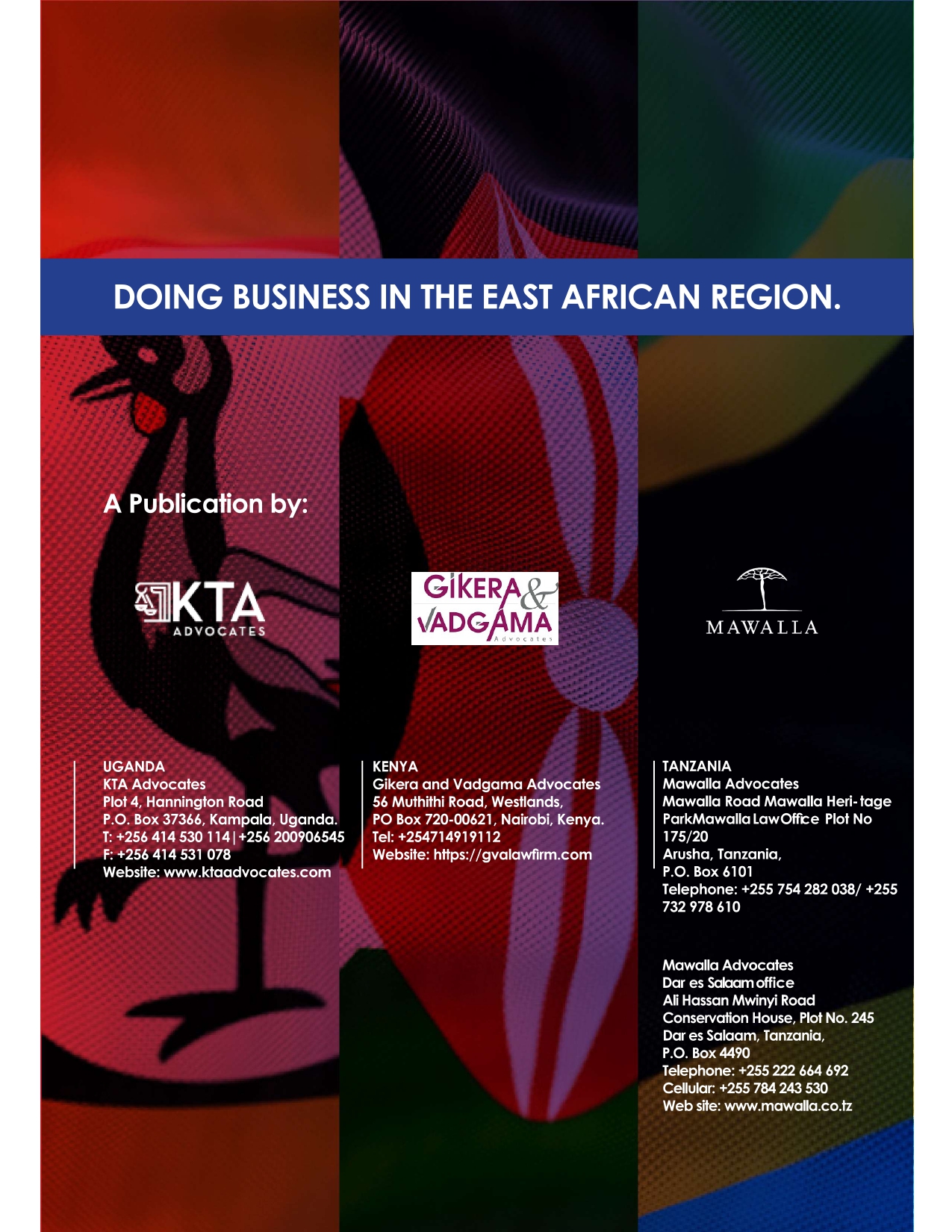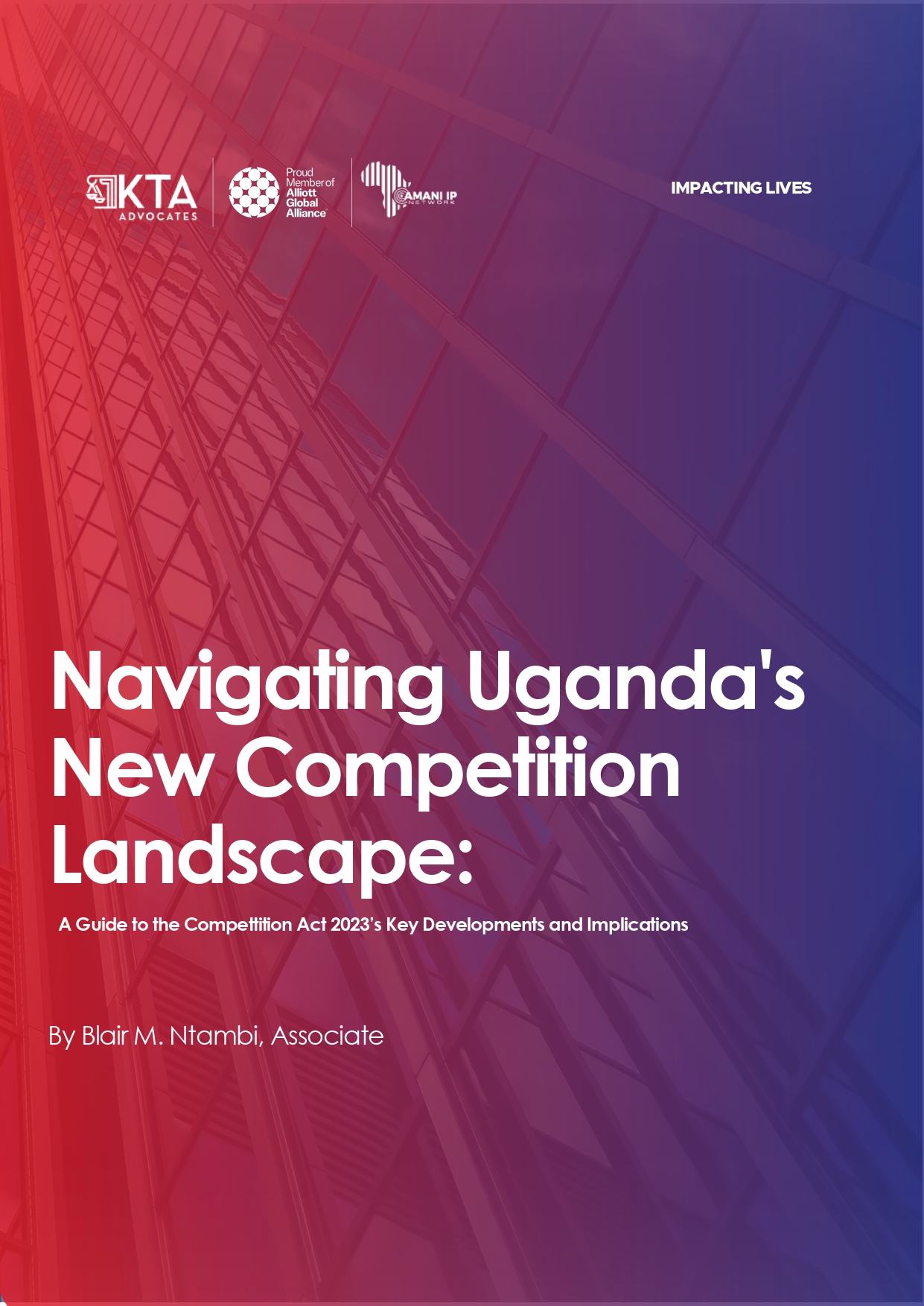A new dawn is upon us, aptly dubbed the “Fourth Industrial Revolution” by Klaus Schwarb, founder of the World Economic Forum also known as “Industry 4.0”[1]. This is in reference to the manner in which technology has pervaded all the spheres of our lives thus creating endless possibilities. No sector has been left out thus far; from health to agriculture, to media and law.
With the advent of Artificial Intelligence, Blockchain technology, the Internet of Things, machine learning, big data, online dispute resolution; with some jurisdictions now recognizing process serving through Whatsapp, text messages and email, it is surely no longer business as usual[2].
Africa and to be more precise, East Africa is home to the world’s youngest population. A population that is also very energetic, entrepreneurial and tech-savvy. Yes, internet penetration and its related infrastructure in the region is still lagging behind the rest of the world, but on the other hand, many people on the continent have mobile phone gadgets[3].
Africa is currently a hotbed for entrepreneurial activity characterized by the proliferation and rise of many start-ups on the Continent and the East African region[4]. There has also been an upsurge in innovation spaces in the region, for example, the tech-hubs which are firmly taking root[5]. Uganda, for example, is often ranked as the most entrepreneurial in the world[6]. On the fringes, there is also an on-going e-commerce revolution in the region led by the likes of Jumia[7].
Technology will without a doubt play an integral role in the proper integration of the East African Community and eventually the African Continental Free Trade Area (AFCFTA). Most definitely, if capitalized optimally, it will go a long way in improving intra-African trade and bettering Africa’s position in the multilateral trading system largely skewed against it.
The opportunities that come with technology for the East African lawyer are immense and it is therefore critical that they stand up and be counted. The traditional, conservative East African lawyer and law firm has to evolve and acquaint themselves with emerging innovative trends in order to be able to deliver their services better. According to a 2018 survey, law firms are facing increased competition in the legal market with especially the dynamics that have come with technology, but, unfortunately, are still not doing enough to respond to these changes and prepare for the future[8].
Technology will without a doubt come with its pros and cons for the East African lawyer and the legal sector in general across the region.
E-Commerce:
Economic activity is increasingly shifting into the digital realm world over; with retail markets being made more accessible than ever, seamlessly connecting micro, small and medium enterprises (MSME’s) to big markets and giving consumers a plethora of choices in addition to reduced time and transaction costs in doing business[9].
Giants like Jumia with a presence across the East African region are leading lights and as of 2017, the company was said to have made a capital investment in the sector to the tune of $500 million[10]. Such companies alongside the likes of Safaricom through its M-PESA service have contributed to the development of a make-shift electronic trade sector in the region even without support from comprehensive policies and legislation.
The potential that e-commerce provides for micro, small and medium enterprises as far as participation in global markets cannot be over-emphasized. This is especially very important in relation to the Common Market for East and Southern Africa’s (COMESA) Digital Free Trade Area which is currently in the offing[11]. This is an initiative that seeks to increase intra-African trade in leaps and bounds.
E-commerce comes with its risks and challenges for small businesses and that is where the East African lawyer will have to come in handy as far as helping MSME’s navigate these obstacles.
For example, the COMESA’s Digital Free Trade Area is vouching for an e-Certificate of Origin; rules of origin have since time immemorial been a complicated and delicate subject for traders and tax authorities. In addition to this, there are other problems that will inevitably dog this fledgling e-commerce market in East Africa which does not have a solid e-commerce framework like Intellectual Property and Competition issues. This is where the tech-savvy East African lawyer must rise to the occasion so as to create conducive business eco-systems for East African MSME’s in order for them to benefit from the economies of scale that will come with this e-commerce revolution.
Data Protection:
The European Union’s General Data Protection Regulation (GDPR) with its novel concepts like “The Right to be forgotten” came into force on the 25th of May, 2018, quite timely in this era of “Big Data” where almost every aspect of economic activity is stored as data[12]. GDPR has become more or less the global benchmark for the protection of personal data of consumers globally.
Unfortunately, there are no sufficient existing data protection frameworks in the East African region, this portends some problems for European Union based companies doing business in East Africa and yet the GDPR demands full compliance by European Union based firms.
East African lawyers must therefore advocate and push for the passing and implementation of well-thought-out data protection frameworks in the region and their respective countries. East African countries that do not have adequate levels of data protection face significant risks as far as a reduction in Foreign Direct Investment (FDI) is concerned.
Innovative Services:
For the East African law firm to benefit from the fourth industrial revolution, fostering an innovative culture is a must. With technology, will come creativity and innovation in the delivery of legal services to clients for the East African lawyer and law firm.
The traditional law firm is not sustainable and inevitably has to evolve and adopt innovative ways.
Already, there are a couple of East African law firms that are leading the way as far as innovation is concerned; KTA Advocates (formerly-Karuhanga, Tabaro & Associates), a Ugandan law firm is one example of such a law firm. This law firm, with a couple of other partners established and runs a “Tech-hub” enabling them to provide both space for innovators and tap into this nascent market[13].
The more forward-thinking law firms and lawyers are in this era, the better their chances of successfully competing and serving their clients satisfactorily.
Access to Justice:
The legal profession cannot exist without proper “Access to Justice” facilitation being in place. There are many hindrances to “Access to justice”; ranging from structural, to financial, to attitudinal, to geographical and technical barriers. This problem is exacerbated by a lack of awareness of the law among the populace.
Thankfully, again, there are champions in this regard in East Africa. BarefootLaw, a Ugandan startup has pioneered this fight by providing online legal services free of charge on their social media platforms. They have since even scaled up and set up another platform called the “MSME Garage” that provides business advisory services to micro, medium and small enterprises[14].
Others like “Lawyers 4 Farmers” have since followed suit spreading awareness of basic legal knowledge and entrepreneurial skills for farmers[15]. These “Access to Justice-techpreneurs” have their credit been the leaders so far when it comes to legal tech in the region[16].
Industry 4.0 provides many other opportunities for lawyers to give back to society; East African lawyers can, for instance, make readily available smart contracts and also help local communities in their awareness, drafting and interpretation.
There are many other areas concerning the fourth Industrial revolution that lawyers in East Africa are inevitability going to have to skill up in and acquaint themselves with so as to better serve their clients like blockchain technology and the banking sector.
From the foregoing, one thing stands out like a sore thumb; the need for a solid, thorough and comprehensive legal framework to enable the East African lawyer fully tap into the opportunities associated with this digital revolution. The East African lawyer must, therefore, be relentless in their advocacy role in order to have this legislation in place.
It has been argued in some quarters that technology will replace lawyers in the near future and that today’s lawyer should increasingly be worried about the drastic, far-reaching effects that technology is going to have on the profession.
However, I am bullish that technology will not replace lawyers and to quote Franz Fanon
“Each generation must, out of relative obscurity, discover its mission, fulfill it, or betray it.”
The East African lawyer in this fourth industrial revolution has the mission of re-inventing themselves; from being a “Donoghue V Stevenson” lawyer to learning how to code, to being a legal technologist and legal data scientist. An efficient and effective integration by the East African lawyer of both human and machine skills is what will determine the winners and losers in this Industry 4.0.
Adapt or die, innovate or perish!
[1] https://www.weforum.org/about/the-fourth-industrial-revolution-by-klaus-schwab
[2] In a ruling of 26th July 2018 Hon Justice E. A. Garba of the High Court of Taraba State in Mohammad Awwaldanlami, Esq. v Governor of Taraba State & 24 Ors (TRST/11/2018) held that the originating process and other processes of the court should be served on the 3rd to 25th Defendants/Respondents by posting and sharing on social media.
[3] https://guardian.ng/technology/africas-mobile-phone-penetration-now-67/
[4] http://edition.cnn.com/2014/05/13/business/numbers-showing-africa-entrepreneurial-spirit/index.html
[5] https://www.gsma.com/mobilefordevelopment/programme/ecosystem-accelerator/africa-a-look-at-the-442-active-tech-hubs-of-the-continent
[6] https://www.virgin.com/entrepreneur/uganda-named-worlds-most-entrepreneurial-country
[7] Salaton Njau, “Jumia Sinks into $139.3m loss.” The East African, Tuesday, April, 17th, 2018.
[9] Don Clurik, “From digital trade wars to governance solutions: The G20 and the digitally enabled”. 28th August, 2018.
[10] UNCTAD 8th August, 2018.
[11] “Africa’s first Digital Free Trade Area for rollout in 2018.” 8th January, 2018. Tralac.
[12] “GDPR-Not just An EU Concern: The Implications for Africa.” Dalberg Advisors.
[14] https://www.dignited.com/10444/future-law-chat-gerald-abila-founder-award-winning-social-enterprise-barefootlaw/



